The MSIA Presidency, left to right: Vincent Dupont, Paul Kaye, Mark Lurie.
Part Three of a Three-Part Interview in the New Day Herald (NDH) with MSIA’s Presidency: Paul Kaye (PK), Vincent Dupont (VD) and Mark Lurie (ML).
NDH: What is your vision for the future of MSIA and how it’s presented to the general public?
PK: We are always looking at what can we do to open things up. How we can make the teachings more available. We are often asked why don’t we do more marketing. The answer is that we don’t want to do things the way of the negative power. Not that we haven’t tried!
A few years ago we put together a well thought out marketing plan and were about to launch it when J-R put a stop to it. He let us have the experience but we were going off track and so he re-directed us.
The negative way says, “If you come here you’re going to have this experience.” What we’re saying is, “We’re here, and does this resonate with you?” It’s far more neutral and offers more freedom. The push, the drive, the worldly approach, is definitely not what J-R supported. So in promoting MSIA we look at our attitude, how can we keep on purpose, make a meaningful contribution to people and of course do it for the highest good of all concerned. Attitude includes us not being attached to the results. It seems that as soon we become attached to the results, for example, more people on discourses, we leave grace and enter into a karmic field. As much as possible we want to stay clear of that.
NDH: You’ve talked about your expectations when you got involved with MSIA. How about Peace Awareness Labyrinth and Gardens?
PK: Probably the main reason we’ve been together for twenty years as a Presidency is that we really love this work. These teachings are still very much alive for us. So almost every day we wake up to the surprise of how few people are involved with what we consider to be the best thing on the planet. Our expectations set up our disappointment, every time. But in our naiveté we can’t help but wonder why more people are not involved? We have this incredible property, we have these amazing teachings so when somebody does get it, we’re thrilled. Just one person getting involved can keep our enthusiasm up for weeks.
VD: Absolutely. Also none of us are really marketing or promotion oriented by nature. So J-R’s approach to making the teachings available is very much in line with our own modus operandi in a way. I remember way back when I was still living in France and, J-R visited there. I was excitedly saying to J-R, “Oh my God, this is so incredible I’ll tell everybody about it. How can I get more people to participate?” And J-R told me, “Don’t. Just live the teachings and let people demand from you before you say anything. He literally used those words, “Let them demand before you say anything.” And so here we are, thirty-five years later.
It’s the difference between what J-R calls selling versus presenting. In the selling process and marketing process there is always a promise built in. For example, “Take this pill, your hair will grow. Or, take this workshop and you’ll become rich.” There’s always like a hook or promise built in. What I finally got after talking to J-R several times is that we don’t make promises, we don’t build on a hook. J-R himself has said that in the ten percent level he doesn’t make promises. So its very simple–either the person awakens inside, or they don’t. In terms of my own personal affinity, I like it a lot better that way. It’s so much cleaner.
NDH: It’s been an interesting experience so far in this interview. As soon as we start talking about MSIA and the Traveler I just start going into a higher state of consciousness and everything’s wonderful. Everything’s perfect. It’s like there’s nothing to talk about. And then as soon as we talk about Windermere, or Peace Labyrinth and Gardens, or what can be done, I come back into my body and I think, yes, we could do this, we could do that. It’s like there is a distinction between MSIA, and the purity of the Traveler’s teachings on the one hand, and then on the other hand we have the different things we do in the world as offshoots to create a physical place for MSIA, like Windermere, and Peace Awareness Labyrinth and Gardens. It’s as though, just as I have a spiritual body and a physical body, the Traveler has a physical vehicle in the world that operates according to different laws.
VD: I look at what you call the physical body as being MSIA and its related organizations acting as a support system to function in the ten percent according to the teachings. I think we’re all quite clear that the essence of MSIA, Soul Transcendence, is the inner relationship each person has with the Traveler and the Spirit within themselves, and making it back into the Heart of God. And the physical body on this planet has learning and growth opportunities. So the physical part of MSIA to me is entirely dedicated to holding for that growth process that is taking place, as well as making the Traveler’s teachings more available and preserving them.
As long as I see it in that way, I stay on track and on purpose on how to direct the day-to-day operations. How is it supporting students out there? How is it making it easier for people to get in touch with the Traveler? How is it supporting ongoing study for people who are already involved? And that’s basically it.
When it comes down to our ten percent it’s a very practical thing. We’re using practical spirituality. If you look at Insight and USM, and the other organizations that J-R started, they all fulfill different purposes and in their own way tie into the same idea–supporting the people, living the teachings, and making the most of the human experience on their way back home to God.
PK: With PTS, it’s the learning the lessons of the physical and spiritual worlds.
NDH: You’ve been working as the presidency for over twenty years now. Have you had any disagreements?
ML: Yes, we’ve had disagreements, but J-R gave us a really good tip for dealing with it. He said if we ever find ourselves in disagreement all it means is that we have to talk it through more. That really helped us. When we’ve had something that we haven’t been able to come to consensus on we have done this and ultimately we’ve always worked things out. We seem to naturally take turns in different roles on any subject. For example, one of us will be the practical one, one of us will be the passionate one, and one will be the neutral one. And it constantly changes. Nobody holds the same role all the time.
VD: It definitely involves talking it through and also getting more information. J-R said when we are stuck we need to talk it though more and get more information.
PK: We are consensus based. So when we don’t come into consensus, it’s an indication to either sleep on it, or get more information. Getting more information often involves talking to others.
VD: Information could be inner as well as outer. It doesn’t have to be just ten percent information.
ML: On the repair of the balustrades for Prana, many years ago, Paul was really in favor of it at first, and Vincent and I weren’t. Then, it switched, and then Paul wasn’t and Vincent and I were. At first the information kept flying around and our ideas about it kept moving and it didn’t get really clear, until we got all the information, and we really thought about it, we went inside and then it all came together.
It’s amazing that we’ve worked together for so many years and we’re really good friends. We all share the same vision and enjoyment of MSIA. It’s just a total pleasure for us to work together. And it hasn’t been without sandpapering, but it’s never been bloody.
VD: Except on the basketball court.
PK: When I lived at Prana at different times I roomed with Mark and with Vincent. That was when there was a mostly bare room with two mattresses on the floor. So we go back a long way.
NDH: A recent development that’s been interesting is the Spiritual Warriors movie and how that’s related to the MSIA Presidency. Has it changed anything how the Presidency operates?
PK: Not at all. We’re in complete support of the Spiritual Warriors movie. J-R has charged the movie up spiritually, and it’s another way in for people to find an attunement to the energy of the Traveler. We’re particularly happy because it does get J-R out of LA and visiting the MSIA communities throughout the world. And he has been very available to people.
Being around J-R is still a high. He says those few words that can last you several years. It’s the exact thing you need to hear or work on. And just being in his presence opens you up to more loving. So when Spiritual Warriors is being screened, J-R usually is there and is accessible in a way that perhaps he wouldn’t be otherwise.
NDH: Another recent development has been Peace Awareness Labyrinth and Gardens. It’s different from the old Prana, sometimes more formal and institutional than in the old days. How did that develop?
ML: Just to give you an idea of the genesis of it, many years ago we used to have our staff meetings in Santa Barbara with J-R once a year. One year he made a comment like (I forget the exact words), “Why aren’t you inviting people to the church headquarters?” So when the ’94 earthquake hit we took the opportunity to repair and enhance the Prana main house, and then the grounds, and the next thing you knew we were building a labyrinth and the orchard turned into a meditation gardens]. It has an amazing beauty and quality to it that makes us proud to invite people to it.
Not everything turned out the way we wanted, For example, we built the dining room thinking that we might have a fully staffed coffee bar there, and it didn’t happen the way we thought it might. Overall, we’re very pleased with it and lots of people, old-timers and new, are visiting.
VD: I do remember the period that Mark was talking about when J-R said something like, “This is the Church headquarters. Let it be a place for people to come to, to get a whole lot of energy.” I also recall that in the late eighties when we were doing the PAT IV, J-R was talking about the great pyramid of Giza being one of the focal points for spiritual energy coming into the planet at that time, if not the central doorway of spiritual energy into the planet. Somebody in the training asked J-R, “That was then, what about now? Where does that happen today?” And J-R said, “Prana.” So we decided to follow that direction.
Prana has now become a more public place, and being that it’s a place where spiritual energies are being channeled on the planet, people come and they do have a Light experience. It is different for each person, but it’s there. So I think it’s fulfilling a great purpose.
PK: Also keep in mind it’s a work in progress and we’re open to see how it evolves. And of course we are also hoping to attract a younger crowd but the interesting thing is that younger people are not searching like we were. I was searching; I was actively looking for a spiritual master. I wanted to find my spiritual teacher.
NDH: I was the same way.
VD: I wasn’t looking for a teacher, but I was looking for answers.
ML: That’s kind of where I was as well.
PK: Younger people seem to be finding their fulfillment in community, in the connection with other people, so it’s different. Thirty years ago J-R talked about the transition from the Piscean age of individuality to the Aquarian age of togetherness. And we’re seeing it—the current technology facilitates connection. And it also facilitates a mix and match custom made spirituality—taking a bit from everything out there.
VD: When I was young, I was not looking for a teacher but I was doing exactly what Paul was talking about. In fact, if they had the internet then, I might never have found J-R. My attitude was that I am just going to glean from all these different traditions to see what I like and make up my own philosophy. And along the way, I found J-R. When I did, it was like wow, this is something else.
ML: I’ve met people who have experienced MSIA, think it’s good information, but it’s just not their thing to study full time and to go deeper into it for whatever reason. So, whereas one person will want to go in-depth for another it’s a cursory thing as they have so many other things to distract them. Maybe the connection with the Traveler is written on your forehead when you are born.
VD: Because so much information is out there on the Internet it seems like the new generation is more into the virtual experience then the actual experience. At some point, for me when I was younger, I thought, “I’ve got all this information, now I want the experience of what all these people are talking about.” And that’s basically what happened when I met J-R. I had gone to see other spiritual teachers and gurus and I got information but didn’t get the experience. But with J-R, Boom! I started getting the experiences of what I had read about.
ML: I also didn’t get an experience from other information sources. But with MSIA I did. I remember the first time I ordered some books. I was reading a book and all of a sudden, I just couldn’t even stay awake. I realized, wait a second, this isn’t just information. This is affecting me deeply on another level. And then I started doing SE’s, and started witnessing changes in my consciousness.
NDH: How do you deal with having two teachers, John-Roger and John Morton, in the same organization?
PK: Primarily we see MSIA as being J-R’s church and that as other Travelers come along, they would be following the teachings as laid down by J-R, as John is doing. So we look at John Morton as being an extension of the foundation that J-R has laid out. No one heard of the term Mystical Traveler before it was coined by J-R.
John is the Spiritual Director. And really, I think that’s what it comes down to. Some disagreements have arisen over the years, and I think part of that emanates from the point of view that we still see J-R, unequivocally, as the head of things.
ML: When John become the Traveler in 1988, he became the president of MSIA. About a year later, John-Roger asked John to step down as President, and asked Paul Kaye to become president, and for Vincent and I to be the first and second counselors, and that we would operate as a Presidency with consensus leadership. John-Roger wrote a letter to John, and essentially said, “You’re the Traveler, and it’s best that the administration of MSIA be run by somebody else who’s not the Traveler.” So we grew into our role from there.
If we have been at fault it has been insufficient communication with John. We are in the process of correcting that by meeting with him more frequently so we are all on the same page.
PK: Fortunately we all like the same café—now that’s something we have consensus on!
VD: To me getting on the same page is important, because when we don’t explain to each other why we do things the way we do, or what we have in mind, or what our vision or motivations are, there are problems and we can tend to second guess each other. But in the bigger sense of it all, we’re all students and initiates of John-Roger and we all have the same basic purpose at heart.
Clearly J-R has set things up as a tremendous learning opportunity for all of us, in different ways. Sometimes we refer to all the organizations that J-R has created as karma clearing factories. Everybody that gets involved gets an opportunity to clear karma. We all have lessons to learn, and we could probably learn them in a more loving way, and in a more cooperative way, and in a sense in a more fruitful way if we compare notes as we go along because, at the end of the day, we all have the same purpose.
NDH: Is there going to be a John Morton library and the same kind of cataloguing of John’s teachings?
ML: Actually there already is. Barbara Wieland oversees what we call the John-Roger Library and Archives (JRLA), which is a database of John-Roger’s seminars and it also includes any times that John-Roger and John Morton have both been taking sharing at an event. And we also have a separate John Morton Library and archives which has his things that he’s done by himself as well as an overlap of things he’s done with J-R. We archive John Morton’s recordings just like we do J-R’s. We do keep the two separate, which is how J-R requested it be set up.
NDH: Recently Heartfelt has come under the umbrella of MSIA.
PK: Yes. Patti Rayner has been the director for that for 30 years, and that’s something that J-R and John have appointed her to do a long time ago. She’s really held a focus for the activities and also held the focus for the fund-raising. There are a lot of people who make monthly donations to support the work of HeartReach and HeartFelt.
MSIA pays Patty’s salary so almost every penny of the donations that go to Heartfelt and Heartreach are used to assist people.
And one of the most important programs within Heartfelt is the HeartReach program for the sick and disabled and ElderReach for MSIA elders who are incapacitated. This is beginning to kick more into gear as MSIA gets older and we get more people needing assistance. Primarily we offer Prayer Communion, but occasionally minor financial assistance for short term necessities.
There is a tremendous team of people in various cities doing things like grocery shopping, driving people to doctors’ appointments, as well as the Circle of Light for people in their later stages.
NDH: Any ideas about what the future is going to hold for Heartreach and Heartfelt?
PK: Undoubtedly, it’s just going to get a lot busier. This year’s conference theme was the Conference of Heartfelt Service and coinciding with Heartfelt’s 30 year anniversary. I often say that service is the only game in town. I think that there are going to be the two groups of people: the people that are will need to be served, and the people who are able to serve them. I’d say in the next 5 years or so, we’ll all be pretty busy serving. Service is literally going to be the byword of the future. Consequently we have released J-R’s first book on service: Serving and Giving, Gateways to Higher Consciousness.
NDH: And is this diagnosis related to the financial situation?
PK: In the sense that many people are unprepared for what is happening. They’re going to need some kind of assistance.
NDH: And how do you see the financial crises impacting MSIA?
PK: Well, the financial crisis is to me in its nascent stages. It’s got a way to go, and it will impact just about everyone. Ultimately it will all be good. In terms of MSIA, since people tithe, the loss of employment, the business contraction, and the reduction in the value of 401K’s—all that impacts tithing.
ML: With that said, what we’ve noticed within MSIA is that Spirit has always taken care of MSIA; money has always come in to keep us going in times when our treasury has gotten depleted. Like when we bought 2101 Wilshire and our reserves really got low. Five years later, it was as if nothing had happened. We were right back to a solid situation. And we had a similar situation in the 90’s, around the earthquake which affected Prana and 2101, and by the end of the decade we were doing great.
We’re very cost-conscious and watching things and trying to be flexible so that we can maintain MSIA. We’re administrators and taking care of J-R’s teachings and making sure the resources are there to support J-R’s ongoing ministry, are probably the most important things that we do.
PK: We have always been well taken care but we’re not complacent. It’s a very active alive thing. Things right now are more than okay but our job is to monitor change, and be ready and flexible to adjust when necessary.
We’ve recently been doing extensive financial analysis because we feel there are areas that we could be more efficient in, where we could cut costs. We also want to be more ecologically responsible. As solar paneling becomes more viable we’ll do that. We try to recycle as much as possible. Turning off lights that aren’t necessary seems a small thing but actually has a huge impact.
Certainly in the area of property management some people have been critical towards us, like “Why are you buying property and not taking care of your staff?” The fact is that we really do take care of our staff. It’s a fantastic work environment and we give them the best equipment to work with. We give people health and dental insurance, and we have a matching pension plan. And by taking care of the organization we’re trying to ensure that they have a job as well—an increasingly valuable thing in the current environment.
ML: We have very low staff turnover, which is a marker of job satisfaction.
PK: In terms of why do we invest in properties? It’s because we have a fifty to a one hundred year time horizon. For example, Prana West is not something that we just bought for ten years. Prana West is, all being well, a hundred year investment so the building will be available for future generations of MSIAers to mold and to utilize.
Within 200 yards we have Prana, Prana West, and the apartments next door to Prana. With the acquisition of the apartments we have the ability to establish an MSIA community in the center of Los Angeles, the heart of one of the biggest cities in the world. So we have large population to draw from, and we feel like the future is nearly unlimited in that respect. So it’s not like we’ve gone crazy on property, it’s just we want to establish a secure base, as much as anything can be secure in this world, and we’ve done that. Now we’ll see what happens.
NDH: There is this reputation that staff have of working long hours and not getting paid much. It’s kind of this mythology that’s out there.
ML: There is some truth to that but it’s mostly a mythology.
NDH: And is it still is perpetuating itself?
ML: Somewhat. I think that most people would not have that impression, but folks that have been around the Movement for awhile, may still hold that. One thing I’ve noticed is that people have had this idea that Prana wasn’t a great place to live, and they hadn’t been here in for ten years. They would come visit and say, “This place is incredible!” They were holding this old image in their mind of what it was like.
VD: Certainly when Paul and Mark and myself came on staff, we were young and MSIA was in a major growth phase. It was our life. Period. There were no boundaries to our work and we didn’t even think of it as work. To us it was just what we did.
ML: And we were all unmarried too.
VD: Yeah, we were all single, and we had few expenses and we lived at Prana and there was just this incredible high of being involved in whatever J-R was doing. We wouldn’t even think twice about doing what needed to be done.
Progressively the MSIA culture has changed a lot. J-R says, “Don’t hurt yourself and don’t hurt others. Take care of yourself so you can help take care of others. Use everything for your upliftment, learning and growth.” And we do that as a staff. We have a very clearly laid out and written core values that we give to every new staff member. We encourage people to take care of themselves, to balance work, rest and spiritual studies. And we’ve put in place a lot of things to support that. We’ve adjusted the salaries to reflect the cost of living these days, and we’ve implemented a retirement plan. If you look at it from where things are today, I would say that it has changed a lot. I would say that someone would be very hard pressed to say that it is all hard work and low pay and long hours and all that. It just isn’t the reality anymore.
PK: Also, J-R has said that MSIA is not a place where you come to work to get rich. It’s a place where you come to serve. I think that when someone comes on staff, and they come into a very high spiritual vibration and there’s no question that the Traveler is very, very present with the organization. Again, that’s part of why we are here. And so they start dealing with their own karma and it surfaces things, so now they’re dealing with their own karma and the work they have to do. And it feels like a big load that they’re carrying. So, although people are not overworked, they may have a lot to do.
VD: It’s funny, people who’ve recently come in to consider jobs at MSIA, when they see what we are offering, it’s like, “Oh my God! This is so much better than I thought.” And after they’ve been here for awhile, we check and it’s, “This is incredible, I can’t believe this.” Perceptions are very hard to change, especially for people who just have information rather than the experience.
PK: We have a terrific staff. It’s a great group of people. They’re joyful, they’re happy together. In the environment here, there’s very little conflict. People get along well; they’re focused on what they’re doing and they’re Light-filled, and jovial. When I’m at the staff meeting or retreat I think, “Wow, what a joy!” And then the expectation appears again, “Why aren’t people knocking down the doors saying, ‘Look, I’ll do whatever it takes to get in here and work.’” It’s just not that way. People just don’t seem to do those things anymore.
NDH: So what do you see as your greatest accomplishments? Or greatest mistakes or failures along the way?
ML: Our greatest accomplishment is having kept MSIA on an even keel, financially and administratively, over twenty years. I think that’s a huge accomplishment and you can’t take that for granted. John and J-R are doing well, the church is fine financially, and we have a happy staff. I think that’s really cool stuff.
PK: And at the end of the day, just like they say in the Oscars, it’s a team effort. So everybody needs credit that we accomplished this. Without PTS, we wouldn’t get the courses out there, Without the Products Department people wouldn’t receive their discourses and SATs. Without NOW Productions, the works wouldn’t get preserved and remastered with such clarity and excellence. So everybody is part of the team. So in terms of our personal accomplishments, I think that as Mark said, just keeping MSIA solvent, and legally and financially on track is really our biggest win. It’s clear to us that it is really being run spiritually. We have observed so many miracles taking place. J-R watches over us very closely.
VD: It’s kind of interesting when I think of that question. To me, when I look at what’s transpired over the last twenty years it’s very difficult to think of it as an accomplishment or take credit for it. Because I think of it so much due to Spirit, and being Spirit-driven. So maybe our greatest accomplishment is that we cooperated well enough so that things could manifest in the way that Spirit had laid it out for us.
PK: When a staff member does an aura balance it’s not like they’re personally skilled, because Spirit’s doing it. So really the only accomplishment is the person’s ability to get out of the way. If they interject themselves, then it doesn’t function. So if there’s an accomplishment, it’s our ability to get out of the way so the Spirit can do the work.
ML: We’ve all had our little share of things that happened, but nothing really sticks out as particularly tragic. And I think in hindsight you can look at something as being a failure but we’ve learned from our mistakes. With the renovation of Prana West, each setback we had actually turned out to be a benefit to us ultimately. The different city departments stalled us or changed their mind about things, but all those things ended up shifting to something that turned out to be better for us than what we had originally planned.
VD: That’s what I was alluding to earlier on. When these things happen, after the fact I realize is that it was better than I could have hoped for because Spirit is running it. It’s like a safety net that extends to everything that we do. And one of the great things about working with J-R is that he has never been one to come down on somebody because of mistakes they’ve made. If anything, it’s like, “Do something!” Take the action and learn from it.
PK: I think that’s a great point. You could look at it as living in grace, but there’s also working in grace. The grace aspect in our work is extraordinary, when you see it in action you see how things are under spiritual protection.
The biggest thing that J-R has stressed over the years to everybody is: no withholding. That’s a spiritual crime. He’s always trying to keep things out front and open.
NDH: And how do you think you are perceived by MSIA people in general? Do you feel happy or satisfied with how people perceive what you’re doing in your job?
ML: You know, I rarely think about it. I’m kind of just happy to do my job. We get people who come up and genuinely thank us for what we do. That is nice because we really love what we do.
I think sometimes we forget our roles. For instance I may say something at Prana like, “I don’t like those flowers,” thinking that I’m just Mark Lurie not liking the flowers, and then the next thing I know I hear that the Presidency doesn’t like the flowers. Sometimes I don’t realize that people hold my opinion in higher regard. However, what I love is that—and maybe this is an illusion—for the most part we’re treated very normally by almost everyone, and the ordinariness is really appreciated.
PK: Mark raises a good point. Sometimes I’ll leave my office and I’ll be preoccupied with something and I’ll pass people in the hallway or dining room, and then I’ll hear, “Paul Kaye is really upset with me,” because I wasn’t smiling at them. In our position it’s best to be smiling. It’s important to be aware that people are watching us for signals that everything is okay with them and MSIA. But overall, my experience has been the same as Mark’s, one of receiving immense gratitude from folks.
End of Interview.




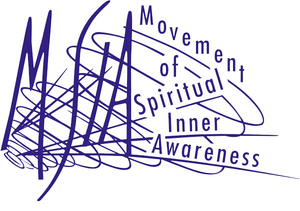


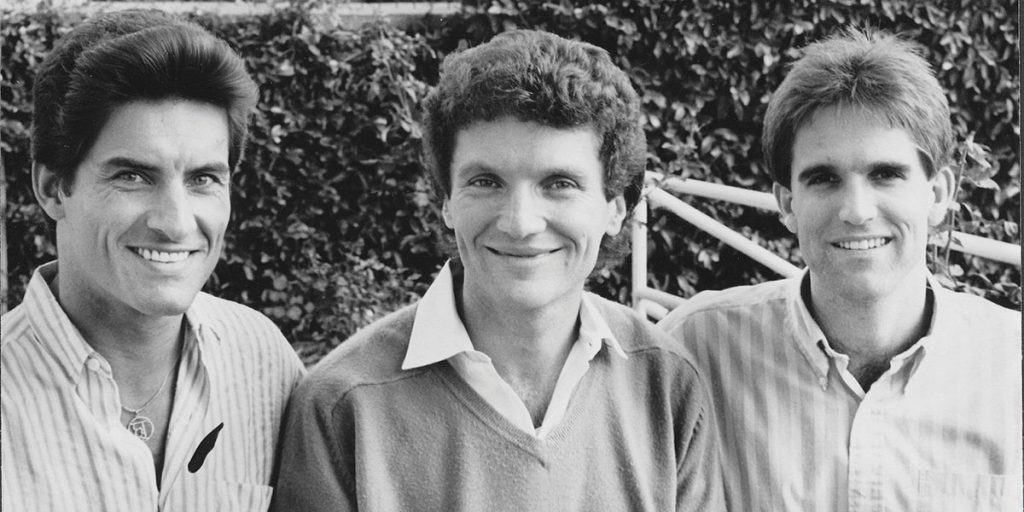
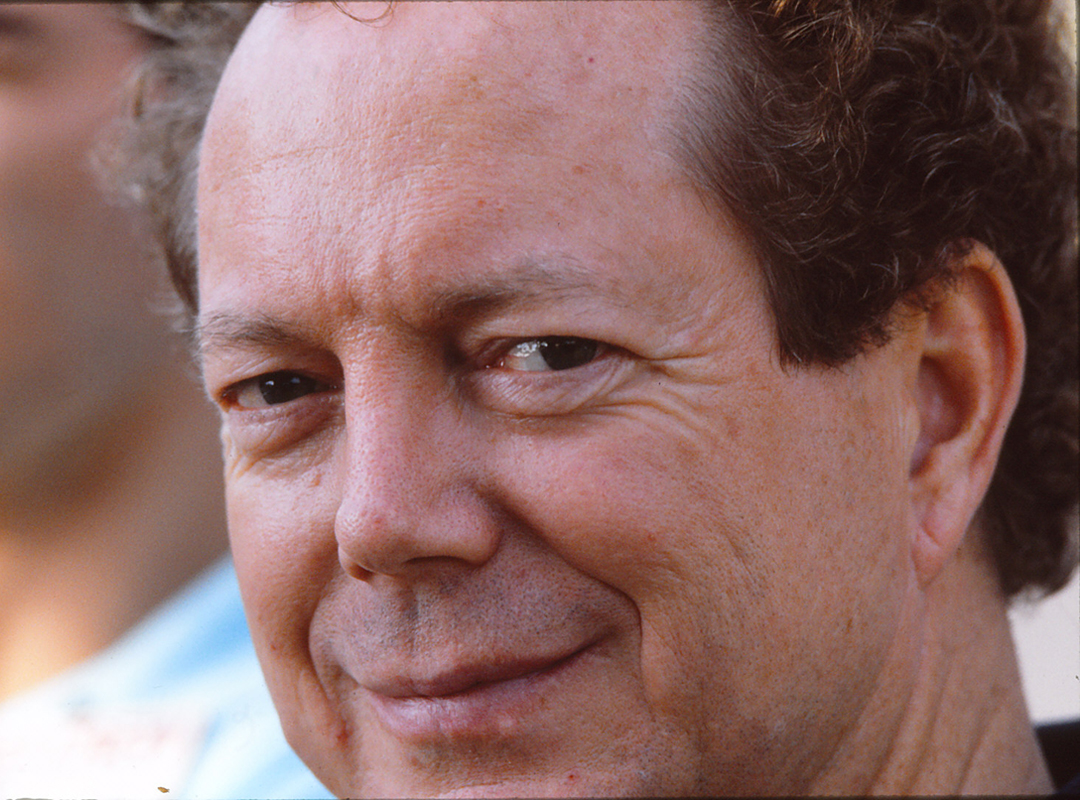
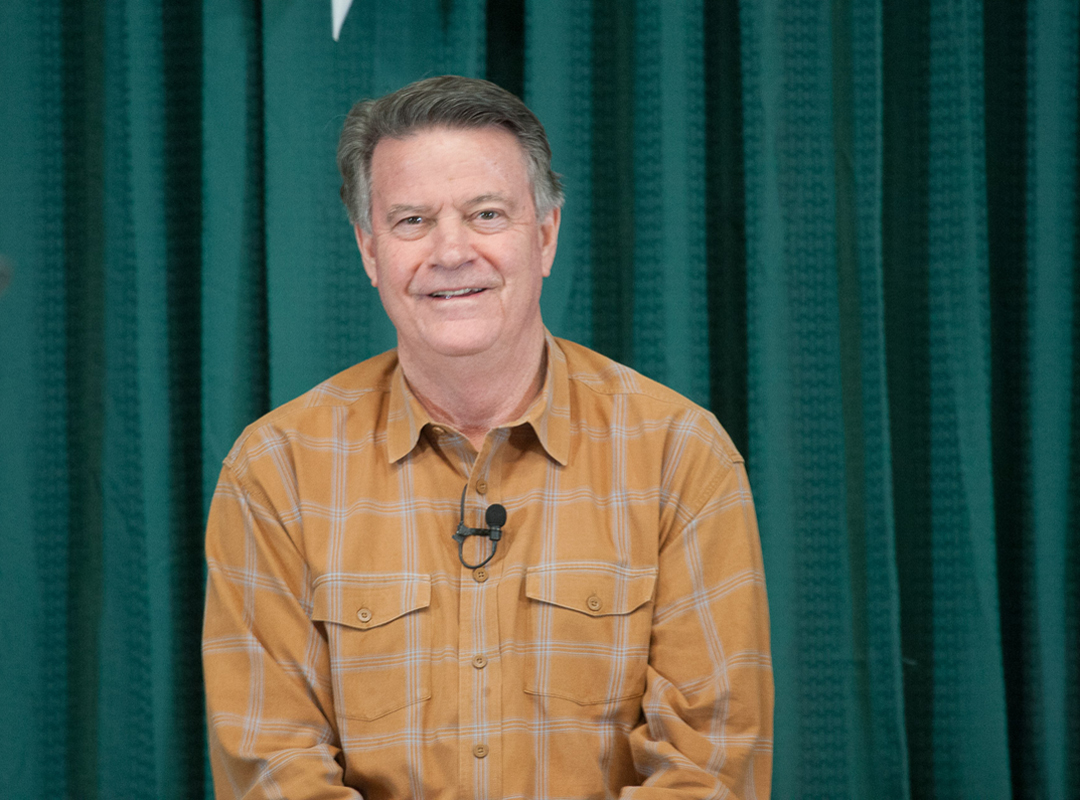
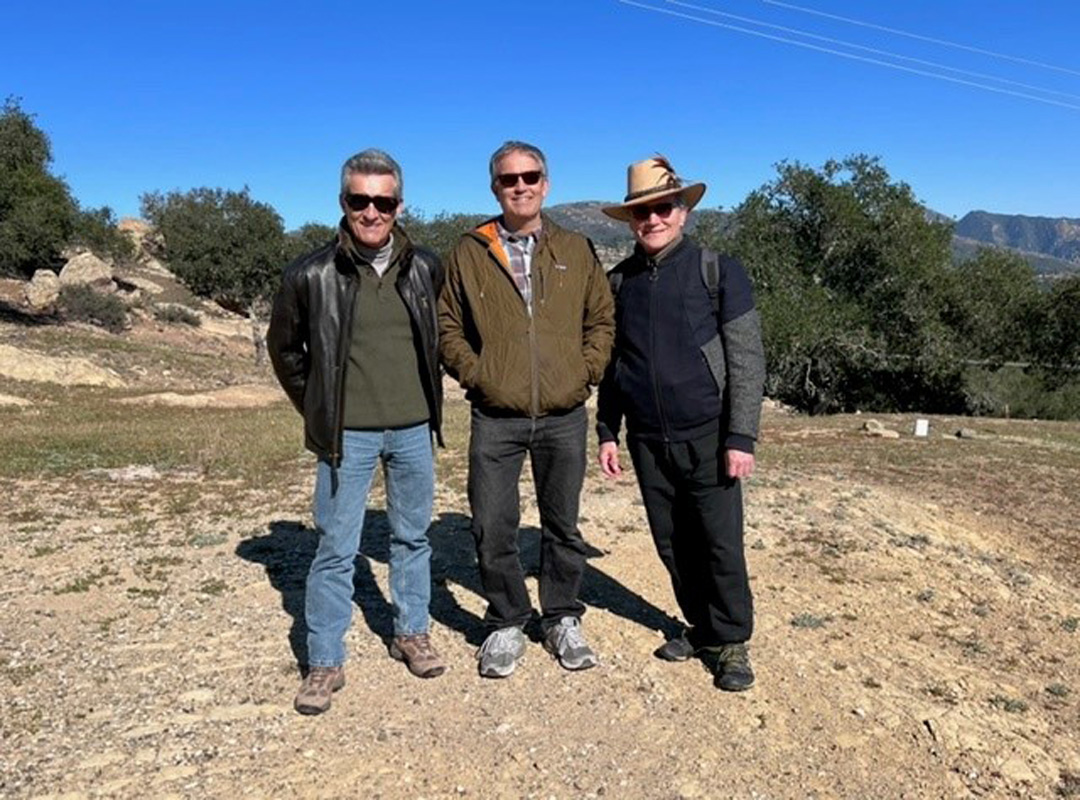
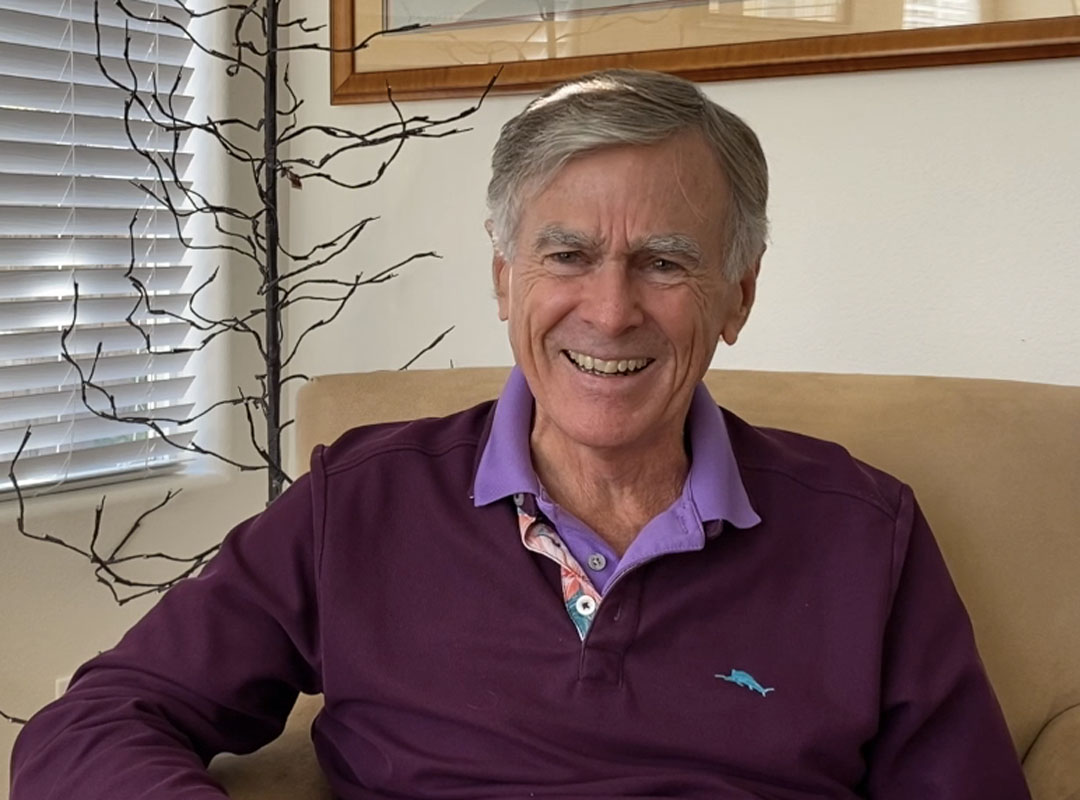
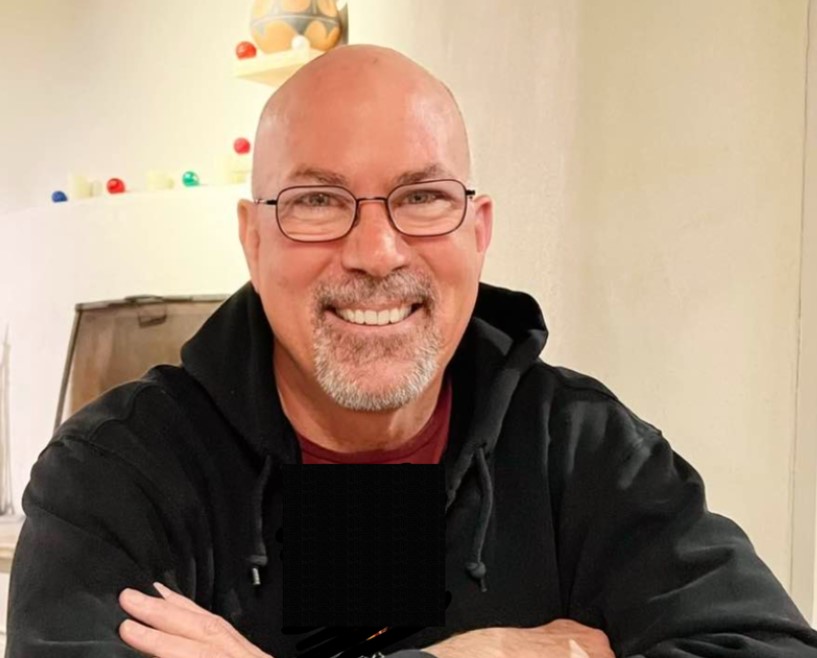
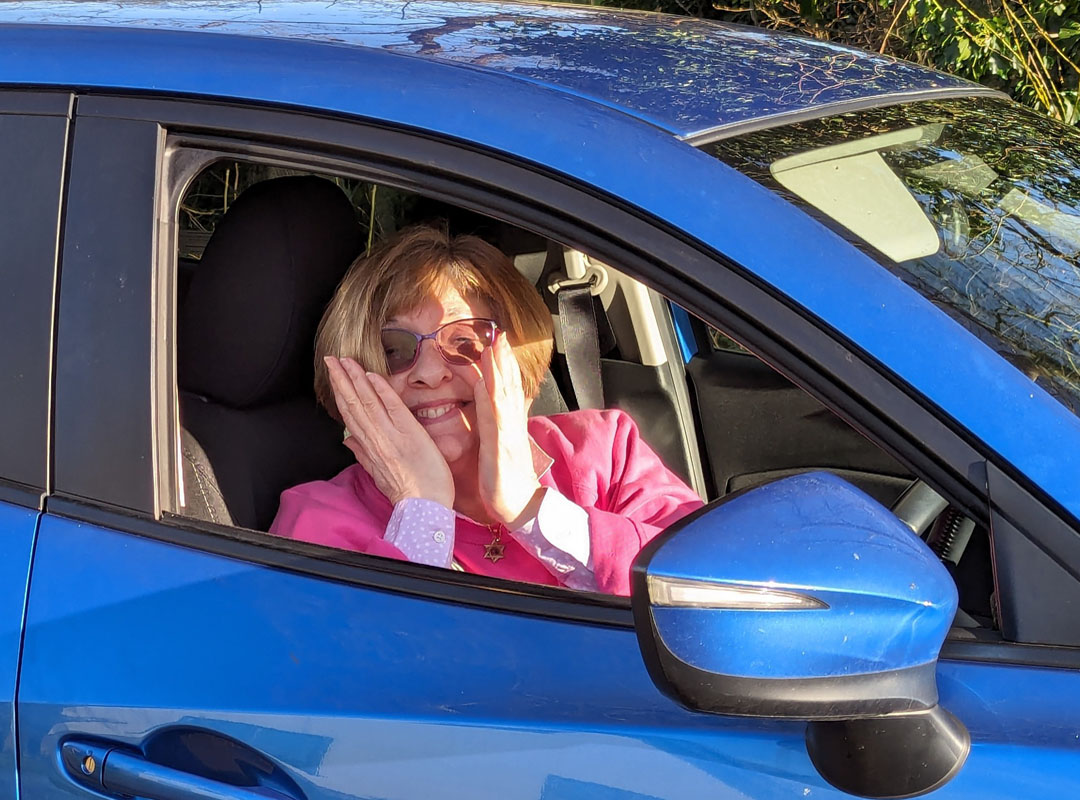
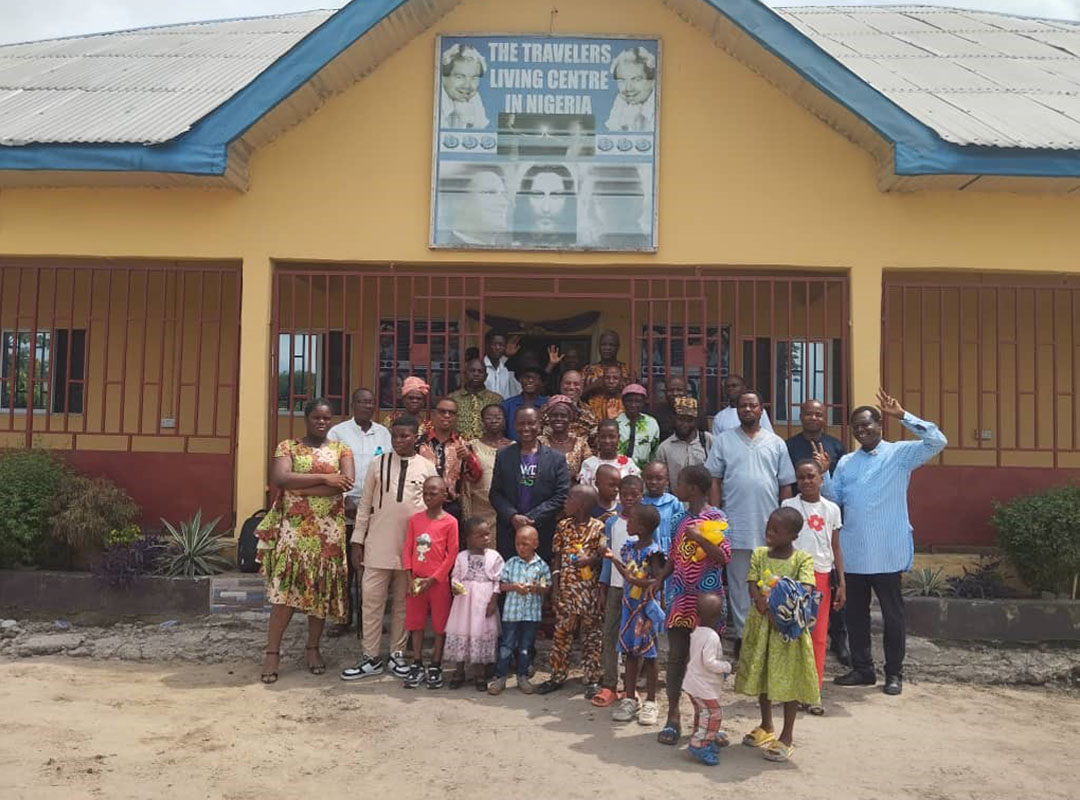
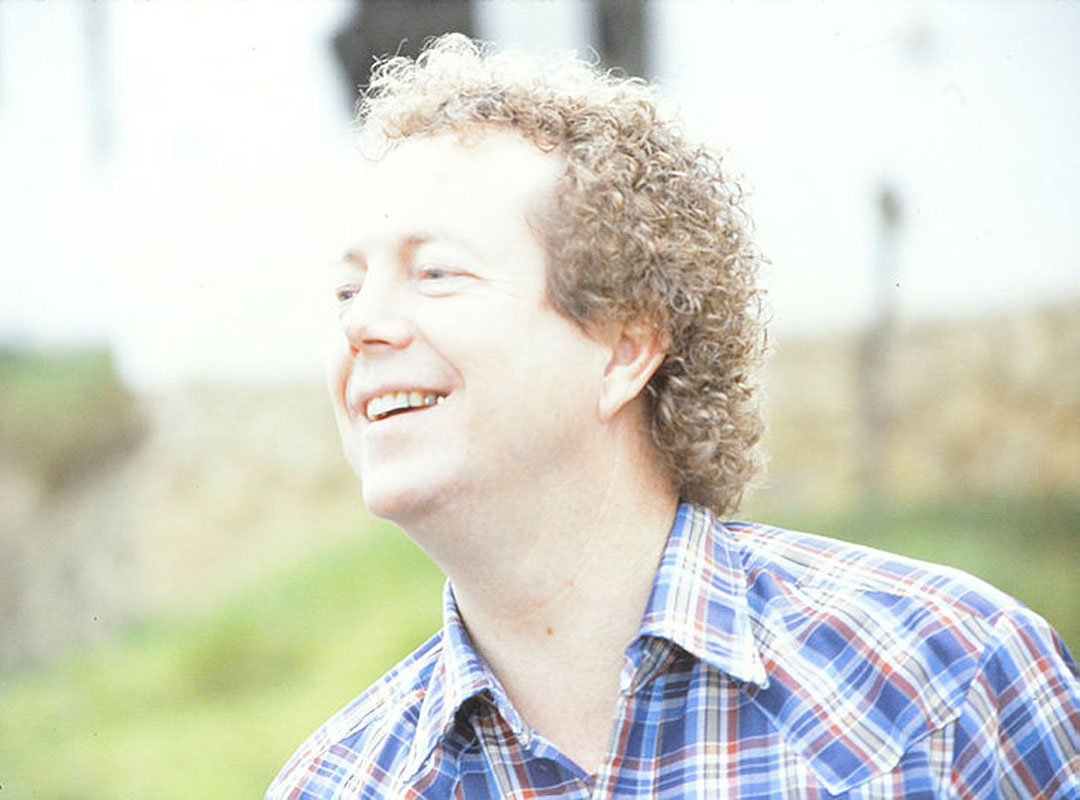
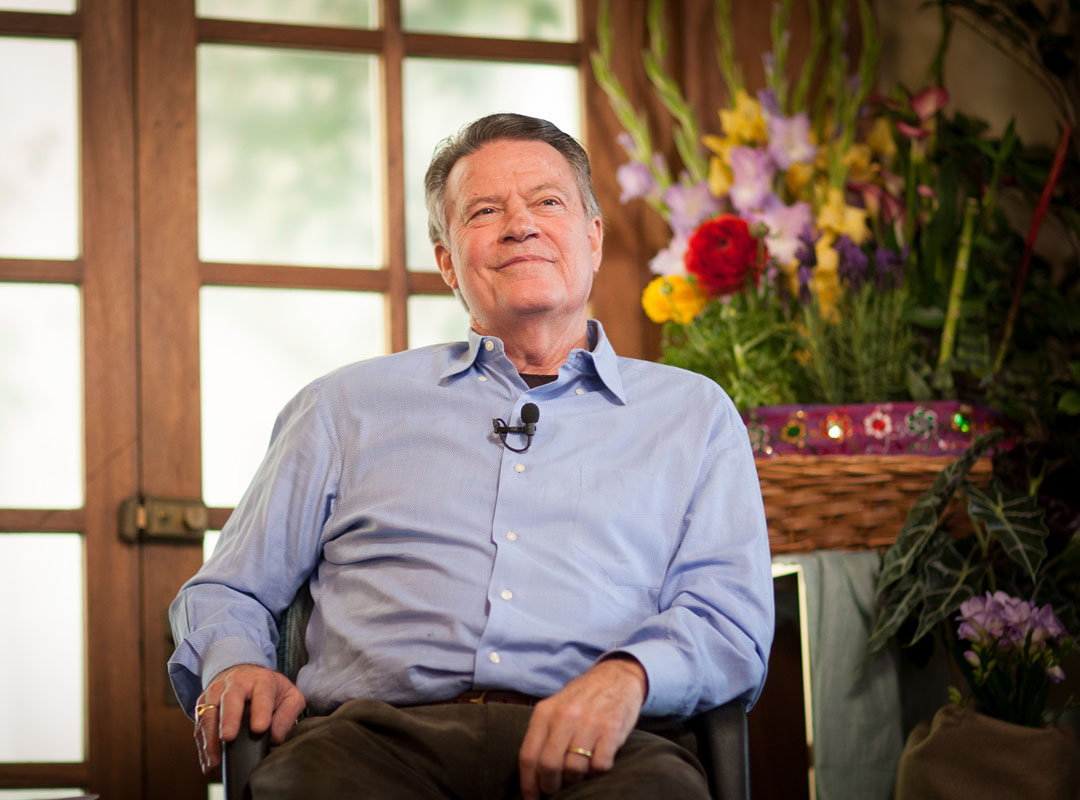
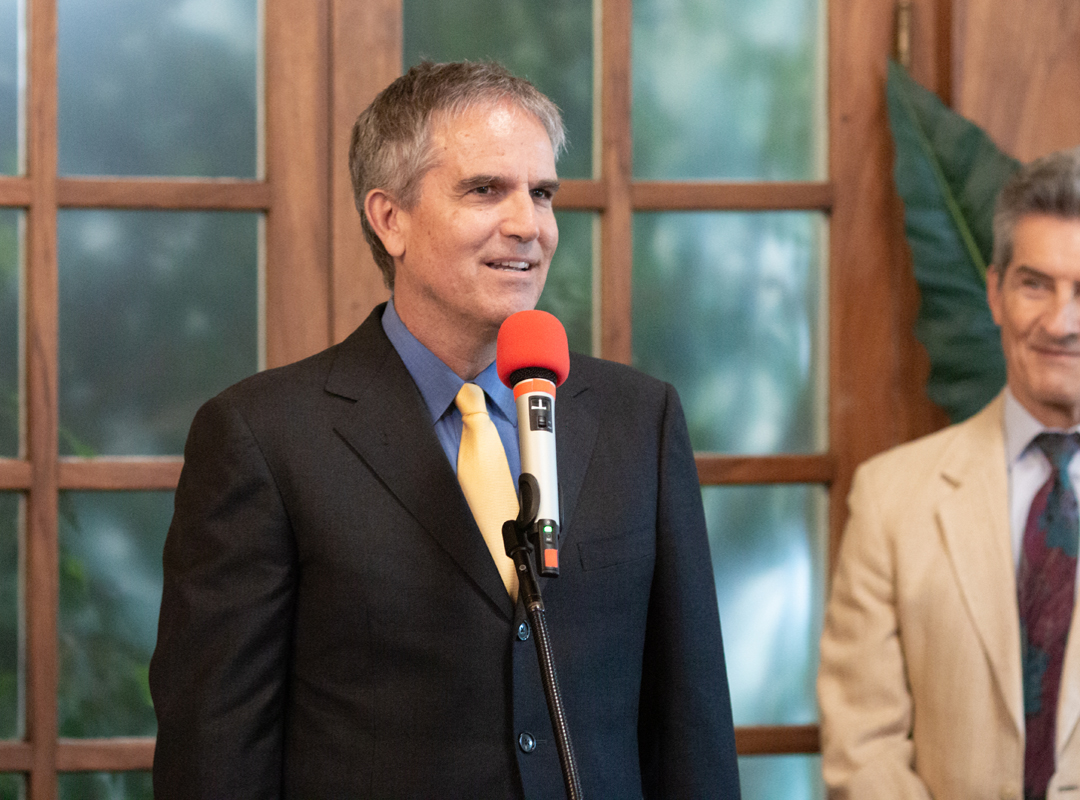
Pingback: The MSIA Presidency Talks About: MSIA, Money, God, Advertising, MP3s, Windermere, Love, Death…& Everything Else – Part 2 « New Day Herald